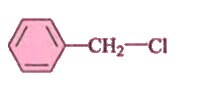A : The dehydration of ethyl alcohol in presence of Al2O3 at 633 K gives ethene.
R : The reaction proceed through the formation of carbocation intermediate.
If both Assertion & Reason are true and the reason is the correct explanation of the assertion, then mark (1)
If both Assertion & Reason are true but the reason is not the correct explanation of the assertion, then mark (2)
If Assertion is true statement but Reason is false , then mark (3)
If both Assertion and Reason are false statements , then mark (4)
The correct Answer is:C
To solve the question, we need to analyze both the assertion (A) and the reason (R) provided in the question.
1. Understanding the Assertion (A):
- The assertion states that the dehydration of ethyl alcohol (C2H5OH) in the presence of Al2O3 at 633 K gives ethene (C2H4).
- Dehydration refers to the removal of water (H2O) from the alcohol, resulting in the formation of an alkene.
2. Chemical Reaction:
- The chemical reaction can be represented as:
C2H5OHAl2O3,633 K−−−−−−−→C2H4+H2O
- This indicates that ethyl alcohol loses a water molecule to form ethene.
3. Understanding the Reason (R):
- The reason states that the reaction proceeds through the formation of a carbocation intermediate.
- A carbocation is a positively charged carbon species that forms during the reaction mechanism.
4. Mechanism of Dehydration:
- When ethyl alcohol is heated with Al2O3, the hydroxyl group (-OH) is removed, leading to the formation of a carbocation:
C2H5OH→C2H+5+H2O
- The carbocation (C2H5+) is then unstable and can lose a hydrogen atom to form ethene:
C2H+5→C2H4+H+
5. Conclusion:
- Both the assertion and the reason are correct. The dehydration of ethyl alcohol does yield ethene, and this reaction indeed proceeds through a carbocation intermediate.
Final Answer:
Both A and R are correct, and R is the correct explanation of A.
- The assertion states that the dehydration of ethyl alcohol (C2H5OH) in the presence of Al2O3 at 633 K gives ethene (C2H4).
- Dehydration refers to the removal of water (H2O) from the alcohol, resulting in the formation of an alkene.
- The chemical reaction can be represented as:
C2H5OHAl2O3,633 K−−−−−−−→C2H4+H2O
- This indicates that ethyl alcohol loses a water molecule to form ethene.
- The reason states that the reaction proceeds through the formation of a carbocation intermediate.
- A carbocation is a positively charged carbon species that forms during the reaction mechanism.
- When ethyl alcohol is heated with Al2O3, the hydroxyl group (-OH) is removed, leading to the formation of a carbocation:
C2H5OH→C2H+5+H2O
- The carbocation (C2H5+) is then unstable and can lose a hydrogen atom to form ethene:
C2H+5→C2H4+H+
- Both the assertion and the reason are correct. The dehydration of ethyl alcohol does yield ethene, and this reaction indeed proceeds through a carbocation intermediate.
Both A and R are correct, and R is the correct explanation of A.
Topper's Solved these Questions
- ALCOHOLS, PHENOLS AND ETHERSBOOK - AAKASH INSTITUTE ENGLISHCHAPTER - ALCOHOLS, PHENOLS AND ETHERSEXERCISE - Assignment Section - C (Questions asked Prior to medical Ent. Exams. 2005)
13 Videos
- ALCOHOLS, PHENOLS AND ETHERS BOOK - AAKASH INSTITUTE ENGLISHCHAPTER - ALCOHOLS, PHENOLS AND ETHERS EXERCISE - Try Yourself
5 Videos
Similar Questions
Knowledge Check
When vapours of ethyl alcohol are passed over Al2O3 at 250∘C, it forms
AEthyl alcoholBEthaneCDiethyl etherDGlycolThe reaction of acetaldehyde in the presence of Al(OC2H5)3 produces :
ACH3CH(OH)CH2CHOBCH3CH=CH−CHOCCH3COOC2H5DNo reactionAliphatic nucleophilic substitution is mainly of two type SN1 and SN2.SN2 reaction proceed with strong nucleophile in polar aprotic solvent. 3∘ halides do not give SN2 reaction. Inverted products are obtained in this reaction and mechanism of reaction occurs through the formation of transition state.
SN1 reaction proceed through the formation of carbocation in polar aprotic solvent. Solvent itself acts as nucleophile in this reaction. Racemization takes place in SN1 reaction.
Which one of the following will give SN2 reaction ?AH3C−CH3∣C∣CH3−ClB C
C DH2C=CH−Cl
DH2C=CH−Cl
Statement - 1 POCl3 can be used to dehydrate alcohols
Statement -2 This reaction proceeds by formation of carbocation in 1st step
View SolutionIn the preparation of alkene from alcohol using Al2O3, which is effective factor?
View SolutionThe reaction of propene with HOCI(CI2+H2O) proceeds through the intermediate:
View SolutionAliphatic nucleophilic substitution is mainly of two type SN1 and SN2.SN2 reaction proceed with strong nucleophile in polar aprotic solvent. 3∘ halides do not give SN2 reaction. Inverted products are obtained in this reaction and mechanism of reaction occurs through the formation of transition state.
SN1 reaction proceed through the formation of carbocation in polar aprotic solvent. Solvent itself acts as nucleophile in this reaction. Racemization takes place in SN1 reaction.
Which of the following compounds will give SN1 reaction?
View SolutionAliphatic nucleophilic substitution is mainly of two type SN1 and SN2.SN2 reaction proceed with strong nucleophile in polar aprotic solvent. 3∘ halides do not give SN2 reaction. Inverted products are obtained in this reaction and mechanism of reaction occurs through the formation of transition state.
SN1 reaction proceed through the formation of carbocation in polar aprotic solvent. Solvent itself acts as nucleophile in this reaction. Racemization takes place in SN1 reaction.
Which one of the following will give racemised product in C2H5OH ?
View Solution
